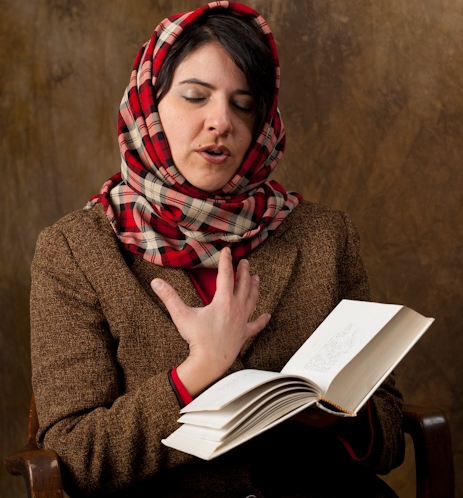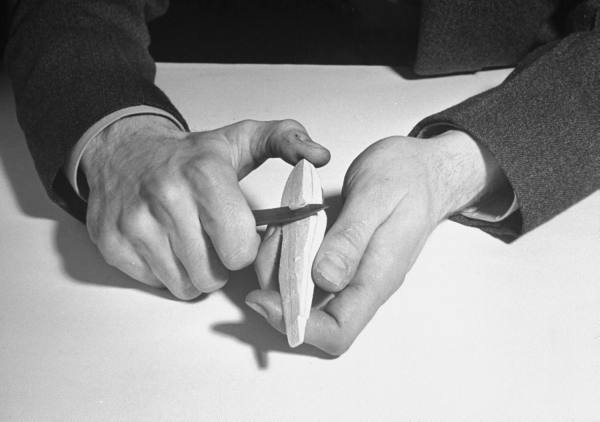A Man Who Washes Dishes
I love a man who clears my table
I love a man who knows how to use
a wire scouring brush on my pots
till they sparkle so
He brings out my shine
I love a man who washes my dishes,
making small soapy circles with his manly hands
around the curves of my delicate glassware,
sliding lathery down the slimmest stem
I love a man who moves patiently
around my kitchen, turning like a deft spatula,
remembering the places and purposes
of every latch, knob, and cubby
I love a man who takes responsibility
in the tired aftermath of a meal
down to the wiping of the last counter,
chasing the last honeyed crumb
into the moist corners of the basin,
neatly grinding the coiled peel of the final tangerine
He is not afraid to descend into the maelstrom of the disposal
and explore the sharp blades with naked fingers–
I love a man who washes my dishes
~ From Mohja Kahf’s unpublished love poetry manuscript written in 1999.
—-

Mohja Kahf, born in Damascus in 1967, is a Syrian-American poet and novelist. Her own conception of Islamic feminism influences the themes of her poetry and writing as do other issues facing American Muslims. Her first collection of poetry, E-mails from Scheherazad, evokes the mixture of pride and shame involved in being an “other,” with characters balancing on the line between assimilating and maintaining the habits of a good Muslim. She explores both important historical female figures in Islam as well as contemporary Muslim women. Historical figures prominent in Mohja’s poetry include Hagar, the wife of the prophet Abraham, Khadija and Aisha, wives of the Prophet Muhammad, and Fatima, daughter of the Prophet Muhammad. According to The New York Times, her writing on contemporary subjects “draws sharp, funny, earthy portraits of the fault line separating Muslim women from their Western counterparts.”
Of the intersection of Islam and art, Mohja says: “One of the primary messages of the Qur’an is that people should recognize the beautiful and do what is beautiful. This is not simply a moral beauty but a visual and auditory beauty as well. Conduct should be beautiful, writing should be beautiful and speaking should be beautiful.” The beauty in Mohja’s writing ranges from the classically reverent in her poems about historical figures to a beautiful humor that simultaneously enlightens. Egyptian-American professor Dina Ibrahim commented on Mohja’s work after attending one of her readings. “It is just so refreshing for someone to put a lighter spin on being a Muslim in America,” she said. “Are we only going to talk about the war, are we only going to talk about how our faith is so misunderstood? It gets really old.












